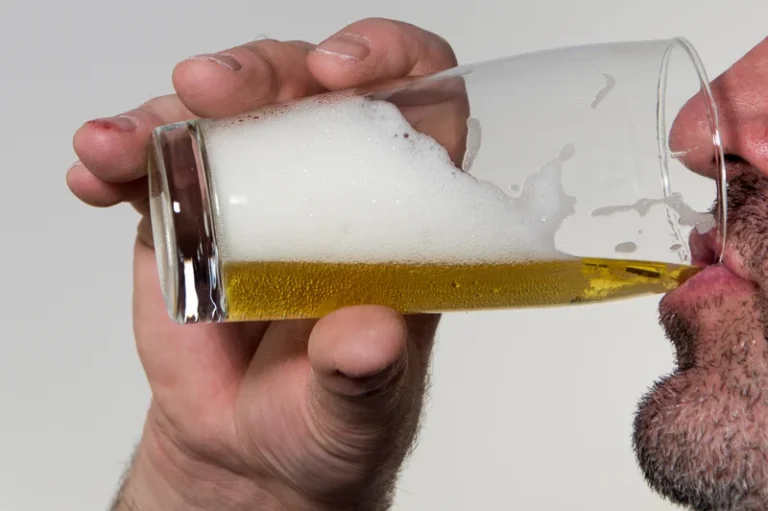How does alcohol affect your sleep?

In turn, this affects all the different phases of sleep we get a night – which are usually finely tuned to make sure we are rested and our brains can function properly. This includes disrupting our restful deep sleep, or REM sleep, leading to more periods of wakefulness. REM sleep is vital for healthy brain development, the National Sleep Foundation noted. Not getting enough REM sleep can make concentrating difficult, cause forgetfulness and leave people feeling excessively sleepy during the day. Poor sleep can also contribute to a wide range of health problems, according to the NIH, including obesity, high blood pressure and depression.
Medicine information
Interestingly, the harmful effects of alcohol were more pronounced among young people compared with seniors. The key is to drink in moderation and give yourself time before going to bed, so the alcohol can clear your system. Grand mean evoked potential waveforms for alcoholics at initial assessment(redlines) andat 12 month follow-up (blue lines) Fz, FCz, Cz, CPz and Pz. Grand mean evoked potential waveforms for alcoholics (red lines) and control subjects(black lines) for the FP1, Fz, FCz and Cz electrode sites. If you think your drinking may be impeding your sleep or overall quality of life, speaking to your doctor or therapist is a great first step. So while cutting out drinking will likely benefit your sleep, there may be other factors affecting your shuteye.
- Because these analyses are performed on stable sleepepochs, results suggest that once sleep is attained, it is not necessarily characterizedby elevated fast frequency activity.
- How long this takes can depend on many factors – including the amount of alcohol, your age, how much you’ve eaten, your sex, and your body type.
- You may or may not remember them, but they can be lucid or give you a feeling that you are half awake and half asleep.
- “If you experience insomnia, mood imbalances and other brain symptoms, it may be best to cut back alcohol intake overall,” Dr. Scheller adds.
- Moreover, it can take one hour for your body to process one serving of alcohol.
Is Your Troubled Sleep a Health Risk?

But the more someone drinks, the more significant the impact, said Meadows, pointing to a 2018 study in the journal JMIR Mental Health. Rundell et al. (1972) studied seven youngmen over three nights of drinking with alcohol administered over an hour, ending 30minutes before bed, with blood alcohol concentrations at bedtime between 0.05 and 0.095 mgpercent. Data are presented from a baseline night, three drinking nights and the mean oftwo recovery nights. Prinz et al. (1980) studiedfive young men over nine nights of drinking (seven of them at home) with a 0.8g/Kg dose(0.08 Breath Alcohol Concentration (BAC) on the laboratory nights) consumed over the hourbefore bedtime. Data are reported from a baseline night; the first and ninth alcoholnights and a recovery night. Feige et al. (2006)studied five young men and five young women over three nights of drinking.

The day after and long-term effects of alcohol
Women tend to have a higher proportion of body fat, which does not absorb alcohol; this increases alcohol levels in the blood. Women also tend to weigh less than men, so drink for drink, there is more alcohol in a woman’s bloodstream. When you drink alcohol, your body is less able to absorb and use a variety of nutrients that can protect it from cancer, does alcohol help you sleep Lee says. These nutrients – which include Vitamins A, B1, B6, C, D, E and K, folate, iron and selenium – help to keep the body healthy, protect cells, create and repair DNA, and reduce inflammation. Heavy drinking can also lead to a host of health concerns, like brain damage, heart disease, cirrhosis of the liver and even certain kinds of cancer.
Explore Sleep Foundation
Long-established research shows the body metabolizes alcohol differently at different times of day. Studies have shown the body is more effective at processing alcohol at certain times of the day than others. With extended use of alcohol over time, there can be long-term concerns, too. Many who abuse alcohol often do it well into the night and oversleep into the next day. In time this may lead to switching up day and night sleeping patterns. Then, as withdrawal from the drug or alcohol occurs there’s a big sleep-wake reversal which then needs to be addressed.

- Read on to find out how alcohol can affect your sleep, and why—as well as insight into the health benefits of getting enough shut-eye.
- Poor connectivity (i.e., deficitsin white matter integrity) likely also contributes, although relations between evokedpotential amplitude and diffusion tensor imaging (DTI) measures of white matter integrityare yet to be tested.
- However, the bulk of the evidence shows that alcohol doesn’t improve sleep.
- Not getting enough REM sleep can make concentrating difficult, cause forgetfulness and leave people feeling excessively sleepy during the day.

